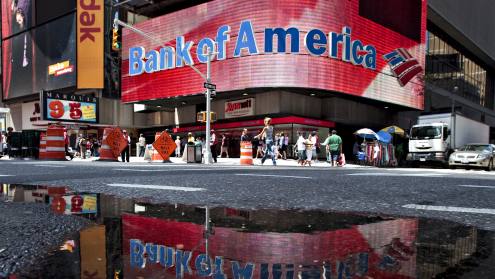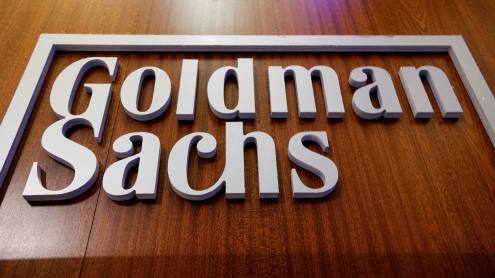The transformed organisation will be spearheaded by chief executive Bob Fuller, who was previously director of IT strategy at Dresdner Kleinwort. Mr Fuller is known as a leading exponent of MiFID implementation and sees this as a great opportunity to achieve the real MiFID vision. “MiFID is intended to create pan-European trading, not trading in national exchanges, and our job is to facilitate that. We achieve it by providing a single point of connectivity to play in the pan-European markets without having to spend large amounts of money individually to compete.”
Mr Fuller emphasises that the aim is not to compete with national exchanges but to offer low-cost, low-latency capabilities for firms to access all of Europe’s pools of liquidity. The result is that a Frankfurt-based trader might have a direct connection to the Deutsche Börse and use Equiduct to access the other 28 European exchanges.
They can then avoid the cost of having to build infrastructures to connect to all 29 national exchanges. Add in internalisers and multilateral trading facilities, and Equiduct offers an easy pan-European trading facility, which is one of the key intents of MiFID: to make Europe’s trading venues more liquid and transparent.
This view is endorsed by Richard Balarkas, co-chair of the Global Steering Committee for the FIX Protocol and managing director, head of advanced execution sales at Credit Suisse. “MiFID is likely to result in liquidity fragmentation as happened in the US,” he said. “Therefore, to insulate the market against the cost of multiple links by building a hub facility with access to all the pools is good.”
Equiduct is the first example of a pan-European integrated approach to single connection for trading and execution, although others may follow. Last month, nine of Europe’s largest investment banks announced Project Boat, an electronic bulletin board for pre- and post-trade pricing of equity trades made off-exchange. It will be available as a pan-European vehicle in Q2 2007.
New York-based Morgan Stanley has announced advanced talks to buy FrontPoint Partners for about $300m as part of the investment bank’s plans to increase exposure to the hedge funds business. The Wall Street bank is also in negotiations to take a 20% stake in Avenue Capital, a hedge fund specialising in distressed debt, for a similar consideration.
Paris-based Société Générale has signed a carbon market joint venture, ORBEO, with industrial company Rhodia. ORBEO will bring liquidity to the carbon market capitalising on the 100 million certified emission reductions generated by Rhodia’s clean development mechanism projects. ORBEO will carry out all CO2 emissions trading for SocGen and Rhodia and for utility, industrial and financial companies.
Banco Popolare di Verona e Novara has announced plans to acquire Banca Popolare Italiana (BPI) in a deal that will create Italy’s largest co-operative bank and the third-largest banking group. The new entity will have a combined market capitalisation of €15.5bn, 2183 branches, more than 2.4 million clients and a market share of 6.7%, said BPI.
Turin-based San Paolo IMI, soon to be merged with Banca Intesa, has won a bid to buy 80% of Bank of Alexandria, Egypt’s sixth bank by Tier 1 capital, for €1.3bn. Also, as part of the Intesa/San Paolo merger, Banca Intesa has sold two regional banks to its largest shareholder, France’s Credit Agricole. Credit Agricole will acquire Cariparma and Friuladria plus 196 of Intesa’s branches for €6bn.
ABN AMRO Rothschild, the equity capital markets partnership between Dutch bank ABN AMRO and Rothschild banking group, has announced that it will open an office in Moscow as part of its strategy to grow equity capital markets business in emerging markets.
Morocco’s Attijariwafabank has agreed to acquire Senegal’s Banque Senegalo-Tunisienne (BST) as part of its plans to expand outside its home market. BST specialises in business lending and has a network of 12 branches across west Africa with a market share of around 7%, according to Attijari.
The Commercial Bank of Kuwait (CBK) has announced it plans to raise its stake in Bank of Bahrain and Kuwait, Bahrain’s seventh biggest bank by Tier 1 capital, from 23% to 51%. CBK aims to increase its activities in the Bahraini financial market.
HSBC, the world’s second-largest bank by Tier 1 capital, has announced it will open an office in Colombia, expanding its presence in the country through the branches of Panama-based Grupo Banistmo, which it acquired recently.
The Bank of Tokyo-Mitsubishi UFJ (BTM) and Malaysian Commerce International Merchant Bankers group have joined forces to sell financial services in Malaysia, covering investment banking, both conventional and Islamic, and cash management services. BTM is one of the first Japanese financial groups to tap Malaysia’s financial sector, which is being gradually liberalised to facilitate foreign players’ access.
Mizuho Financial Group, Japan’s third bank by Tier 1 capital, has agreed to buy the Russian operations of Michinoku Bank, a struggling regional bank and the only Japanese lender to hold a full banking licence in Russia. The deal consideration is ¥7bn ($58m). The acquisition will give Mizuho a lead over other Japanese banks wanting to expand in Russia, like Bank of Tokyo-Mitsubishi UFJ, which plans to open a Russian subsidiary in the next few months.
US bank Citigroup has announced the acquisition of a 20% stake in Akbank, Turkey’s second bank by Tier 1 capital, from industrial and trade conglomerate Sabanci Holding for $3.1bn. Akbank has 658 domestic branches and 10 overseas offices and branches, and reported first half net income of $924m on assets of more then $56bn. The acquisition will strengthen Citigroup’s presence in Turkey and give it control of other financial companies, including insurance and brokerage firms.






